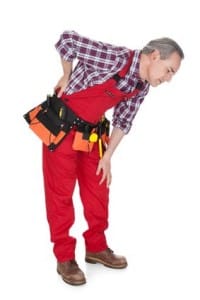Unfortunately, Georgia workers compensation law does not prohibit your employer from firing you. So, many people face the situation where their employer fires them sometimes after they get hurt at work.
Your employer may give you one of a few different reasons for firing you. They might fire you go because you cannot do your job as well anymore (although they would probably not admit that). They may just say that they are laying people off because business is slow. They may fire you because they say you have violated company policy, broken a work rule, or accumulated too many points.
 How does being fired affect my workers’ compensation case?
How does being fired affect my workers’ compensation case?
If you are fired or laid off by your employer, there are two important things to understand
- A Georgia workers compensation injury does not prevent your employer from firing you.
- Being fired or laid off by your employer does not end your workers’ compensation case, but it can change your case somewhat.
Can I still get medical treatment for my workers compensation injury after my employer fires me?
Yes. Being fired from your job should not affect your ability to get workers compensation medical treatment in a Georgia workers compensation case.
Your right to get treatment for your injury comes from the injury itself, not from whether you still work for the employer. So, be sure to keep getting the medical treatment you need to recover from your injury.
Does my employer have to pay me weekly workers compensation benefits if I cannot find another job?
If you have problems from your injury that limit your ability to work, you may be entitled to draw workers compensation benefits after you are fired or laid off. But, you will probably have to prove that it is your injury that is causing your loss of income.
There are a few different ways you can prove that. One of the ways is to prove that your employer fired you because of your injury. This can be hard to do because employers do not want to admit that.
Another way to get weekly workers compensation benefits is to prove that you still have restrictions and that those restrictions prevent you from getting a job somewhere else. We often refer to this type of proof as a “diligent job search”. The idea is that you should receive workers compensation benefits if you show that the restrictions prevent you from getting another job after looking diligently for a job.
Even if you were not pursuing your workers compensation case, you would be looking for a job anyway. If you cannot find a suitable job within your work restrictions, you can try to prove to a judge that you should receive temporary total disability benefits.
A judge can award these benefits if you prove that the work restrictions from your injury prevented you from finding a job. This article talks a little more about how Georgia workers compensation court works.
Can I get unemployment benefits?
Unemployment benefits is a separate area of the law from workers compensation benefits. But, you can sometimes receive unemployment benefits while you have a workers compensation case. Find out more about this by reading this article I wrote about unemployment and workers compensation.
What if I need help trying to get workers compensation benefits after getting fired?
Proving that you were fired because of your injury or that you were unable to find another job because of your restrictions can be difficult. You will probably have to request a hearing. Most people have to get an attorney involved.










